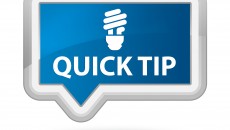If used correctly, soft skills can take you through the toughest of situations, both professionally and personally. There are 100s of books written yet most of us still choose to ignore their importance. Some of us even disagree that it can work. I used to think that only degree based education would advance my career, but in reality this only got me as far as the interview room.
What really will take you beyond this, is your ability to show you possess strong soft skills and showing that you can effectively utilize your skills. If an educational degree is a vehicle, then soft skills are the fuel. Is it possible for a vehicle to move anywhere without fuel? Yes it is, but only by tow. You can only be dragged and you won’t enjoy the ride.
The best thing about soft skills is that they can be learned, acquired, enhanced and developed at any age. Nowadays lots of courses are available on the internet. Choose which skills you want to develop to benefit your work/personal life. Once learned, practice it to your benefit and the benefit of those around you. Being ‘soft skilled’ will always give you an upper hand.
Here is a list of the six basic soft-skills that are of utmost importance to me:
1) Speech
2) The art of effective listening
3) Questioning
4) Thinking
5) Social Media
6) Decision Making
Let’s start with the first one
1) The Skill of Speech: Daniel Webster, an 18th century American Senator quoted: “If all my talents & power were taken away from me by some inscrutable providence & I had my choice of keeping but one, I would unhesitatingly ask to be allowed to keep the power of speaking for through it I would quickly regain the rest.” That is how powerful speech is. To enhance this skill, practice adapting to different situations like one-one conversations, meetings, conferences, on stage presentations and every speaking situation you can think of.
2) The Art of Effective Listening: If speech is powerful, then effective listening gives it that power. Effective listening is an art to make the speaker feel listened to with intent to understand. It’s not always necessary to reply, however, acknowledgement is very important. To make us understand it more deeply I will quote a quote by Larry L. Barker, author of the book Listen Up- “Effective listeners remember that “words have no meaning – people have meaning.” The assignment of meaning to a term is an internal process; meaning comes from inside us. And although our experiences, knowledge and attitudes differ, we often misinterpret each other’s messages while under the illusion that a common understanding has been achieved.”
3) Questioning: If there were no questions asked, answers wouldn’t have existed. Questioning is beautiful. Many of the wonderful inventions and discoveries that exist today happened because there were people to ask questions and people who were curious and courageous enough to face the answers. Always question, never skip a chance to disagree. Legal advising and the research and development industry earn millions of dollars because they know to question and have the ability to find the answers too.
4) Thinking: Thinking never stops! What differentiates humans from the rest of creation is the ability to think. We all think knowingly or unknowingly. It will be a helpful skill only if we structure it. Random thinking can be unproductive and destructive. Thinking needs to be positive, critical, creative and emotional at different times. As the internet era is progressing further, the importance of thinking is diminishing in the human race. Everything is easily available on the internet. Practice structured thinking after reading Edward DeBono’s Book the 6 thinking Hats. Edward DeBono quotes “Teaching thinking for 5 hours to unemployed youngsters increased employment 500%.” That’s how powerful thinking is.
5) Social Media: Is this a skill? This may come as a surprise to many of us, but yes, it is a skill. We are in the internet age and social media is one of the most important skills. Websites like Facebook, Twitter, LinkedIn, BlogSpot etc. are the tools, how well we utilize it is the skill we need to develop. People who have understood this are already doing great on social media platforms personally and professionally. “We don’t have a choice on whether we DO social media, the question is how well we do it.” – Erik Qualman. This is good news for social media addicts but remember to be original because it’s like branding yourself. And we really don’t want to be anything but original.
And last but not the least..
6) Decision Making, Knowing how to identify which skills should be applied where and when: There are lots of decisions that we make every day e.g. when to get up, what to wear, what to eat, how to travel etc. Every situation is different and so should be the way we approach and handle it. One very important decision to make is to understand which skill is suitable for each given situation and the ability to apply it quickly. Avoid wasting your power of decision by fretting or not being able to decide on things that don’t matter. A decision can make or break us so use it wisely.
Learning a soft skill, practicing it and developing it as your nature is a journey, we have to keep on doing it to get better. The moment you think you have learned enough is the moment you will start unlearning.



